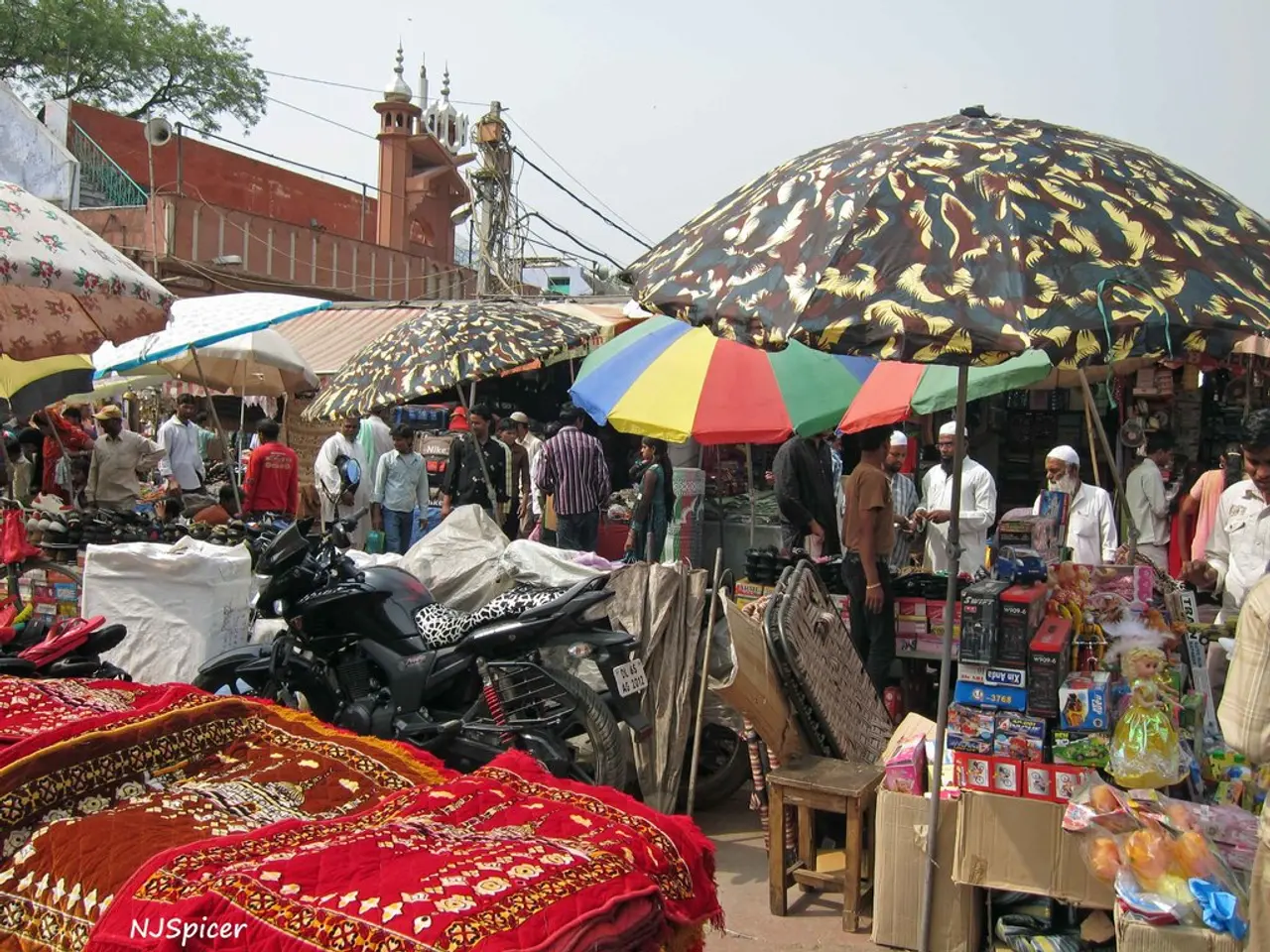Policies of Prabowo stir mixed feelings of optimism and apprehension among Indonesians
In the heart of Southeast Asia, Indonesia, the world's third-largest democracy by population, is navigating a complex economic and political landscape. This vibrant nation, known for its rich culture and diverse archipelago, is witnessing significant changes that are shaping its future.
One of the most striking developments is the launch of Danantara, a sovereign wealth fund by President Prabowo, aimed at boosting the country's economic growth. However, concerns have been raised about Danantara's operation under presidential control, which prevents national auditors from providing oversight.
Healthcare spending has seen a significant reduction of 18.5 percent, while infrastructure investment has witnessed an even steeper cut of 73 percent. These reductions, while necessary for fiscal responsibility, have raised questions about the government's commitment to essential services.
Indonesia's close ties with China, its largest trading partner and a key source of foreign direct investment, have been a double-edged sword. China played a significant role in financing Indonesia's high-speed rail project. Yet, the country's reliance on China may hinder its ability to navigate the U.S.-China rivalry in the region.
The Asian Barometer Survey suggests that Indonesians often link democracy to effective governance and positive socioeconomic outcomes. Interestingly, only 7 percent of Indonesians value economic growth over democracy. This indicates a strong commitment to democratic principles, even amidst economic challenges.
The economic growth rate in the first quarter of the year stands at 4.87 percent, the slowest since the peak of the Covid-19 pandemic. Despite this, Indonesia's exports to the U.S. represent approximately 2 percent of its GDP, underscoring the need for diversification in its trade partners.
The democratic transition in Indonesia has set a regional example with peaceful power transfers. This democratic stability, however, is not without concerns. A March study by Kompas Litbang revealed that 69.5 percent of respondents are worried about the growing presence of military personnel in civilian sectors.
Looking ahead, Indonesia maintains its independent foreign policy and has openly expressed interest in joining the Organisation for Economic Co-operation and Development. In January, Indonesia became the first member of ASEAN to join the BRICS group, further solidifying its position on the global stage.
In April, the currency fell to an all-time low of 16,868 Indonesian rupiah against the U.S. dollar, reflecting the economic challenges faced by the country. Yet, the resilience of the Indonesian people and their commitment to democracy offer hope for a brighter future.
As Indonesia continues to balance its economic growth with democratic principles, it serves as a beacon of hope for other developing democracies in the region. The nation's journey is a testament to the power of democracy and the resilience of its people in the face of economic adversity.
Read also:
- ICE directed to enhance detention conditions following NYC immigrants' allegations of maltreatment
- Israeli finance minister issues warnings about potential annexation of West Bank territories
- United States faces rebuttal from South Africa over allegedly deceitful human rights report and assertions of land expropriation
- Accident at Rodalben Results in Injuries; Geoskop Area near Kusel Affected After Stormy Weather








